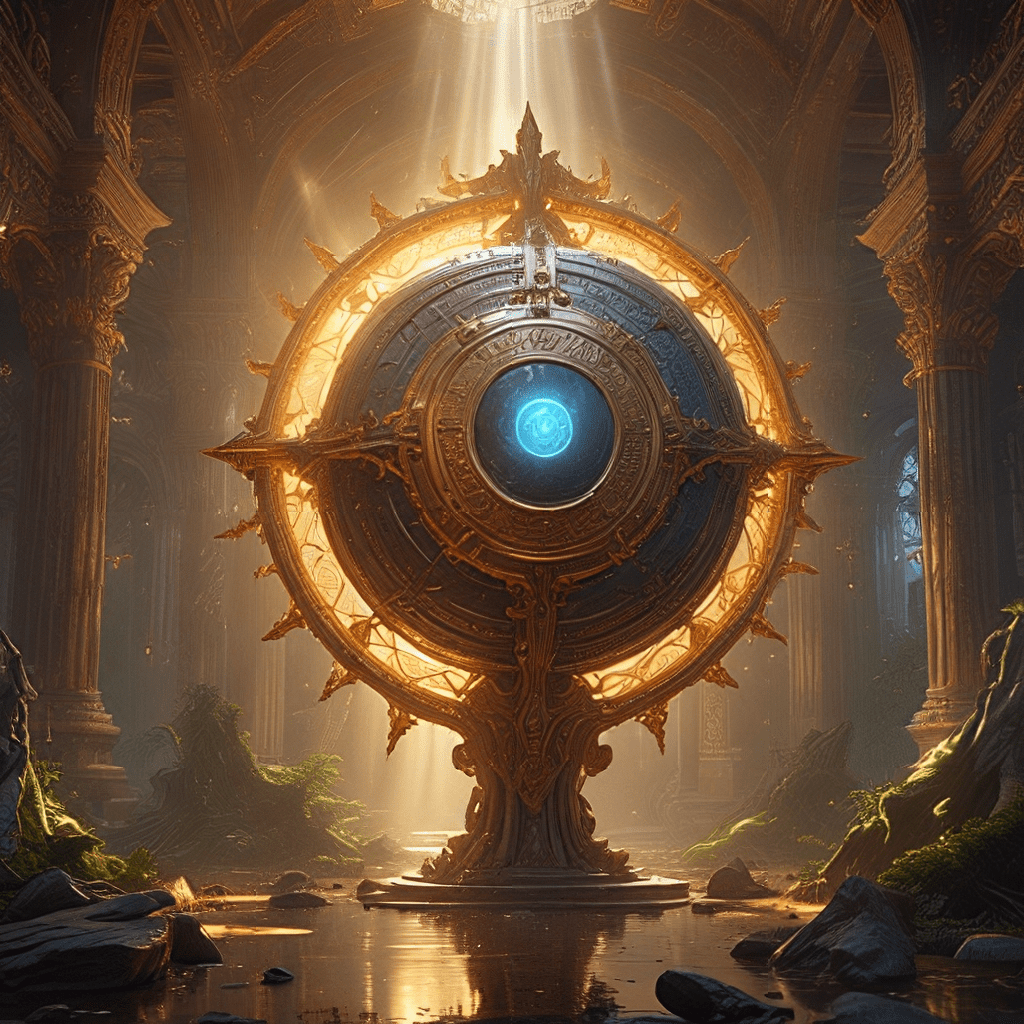The Creation Myth: A Source of Spiritual Insight
1. Introduction: The Enduring Power of Creation Myths
Across cultures and throughout history, humans have sought to understand the origins of the universe and our place within it. Creation myths, powerful narratives that explain the creation of the world and humankind, offer a window into these ancient aspirations. These stories, passed down through generations, are more than mere entertainment; they serve as fundamental frameworks for understanding existence, purpose, and the nature of reality. These myths reveal profound spiritual insights, offering guidance and inspiration for navigating the human experience.
2. Exploring the Cosmic Origins: A Search for Meaning
Creation myths often depict the universe emerging from chaos, bringing forth order and structure. These narratives explore themes like the emergence of life, the roles of divine beings in the creation process, and the interconnectedness of all things. The ancient Egyptians believed in the creation of the world from the primordial waters of Nun, while the Maori people of New Zealand tell the story of the god Tāne shaping the earth from the body of his mother, Papatūānuku. These tales address fundamental human questions: Where did we come from? What is our purpose? Why are we here? They provide a framework for understanding our place within the grand tapestry of existence.
3. The Archetypal Hero: A Journey of Transformation
Many creation myths feature a heroic figure who plays a crucial role in shaping the world. This archetypal hero, often representing humanity or a specific deity, embodies the struggle against chaos and the pursuit of a greater good. In Greek mythology, Prometheus, the “forethinker,” defies the gods to bring fire to humanity, ultimately suffering for his actions. This heroic figure symbolizes our innate drive for knowledge and progress, reminding us that growth often comes with sacrifice. Through the hero’s struggles, triumphs, and ultimate transformation, we connect with our own journeys of self-discovery and the potential for personal growth.
4. The Sacred Feminine: The Source of Creation and Sustenance
In many creation myths, female deities and archetypes play significant roles, often representing the forces of nature, fertility, and nurturing. In ancient Babylonian mythology, the goddess Tiamat represents the primordial waters from which the universe arose. These figures embody the power of creation and the life-giving energy of the universe. They serve as reminders of the cyclical nature of life, the importance of renewal, and the profound connection between humans and the natural world. Recognizing the feminine principle in creation myths promotes a deeper understanding of the inherent interconnectedness between all living things and the importance of nurturing and growth.
5. The Cosmic Dance of Duality: Balance and Harmony
Creation myths often depict a universe governed by contrasting forces, such as light and darkness, order and chaos, or good and evil. These dualities represent the inherent complexity of existence and the constant interplay of opposing forces that shape our reality. In the Chinese concept of Yin and Yang, these two complementary forces are constantly in motion, creating a dynamic balance that governs all things. Understanding this interplay of opposites reminds us of the interconnectedness of all things, emphasizing the importance of balance and harmony in our lives.
6. The Ritual of Sacrifice: A Path to Renewal and Redemption
Many creation myths involve acts of sacrifice, often representing a willingness to give something up for the greater good. In the myth of the Norse god Baldr, he willingly sacrifices himself to achieve balance and order in the universe. These acts of sacrifice often symbolize the potential for renewal and redemption, reminding us that letting go of what no longer serves us can lead to personal growth and a deeper understanding of the interconnectedness of all things. By understanding the themes of sacrifice in creation myths, we can learn profound lessons about the importance of selflessness, compassion, and the willingness to release the old to embrace the new.




